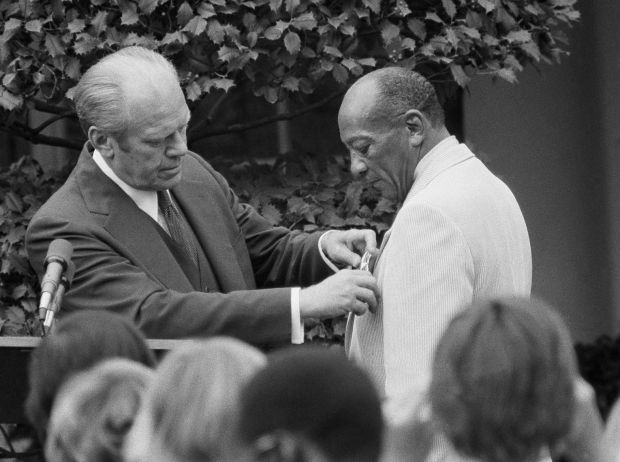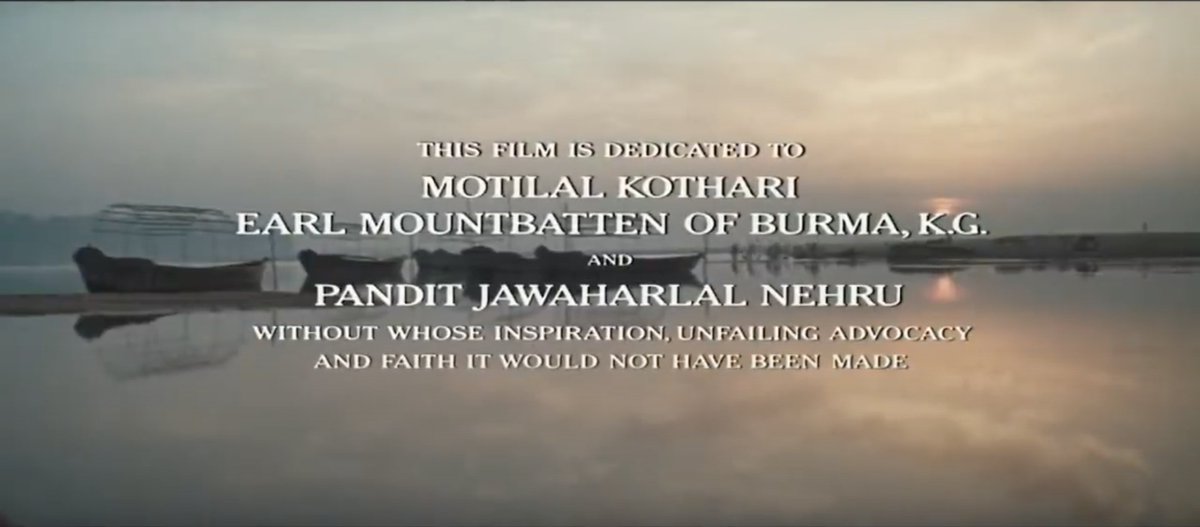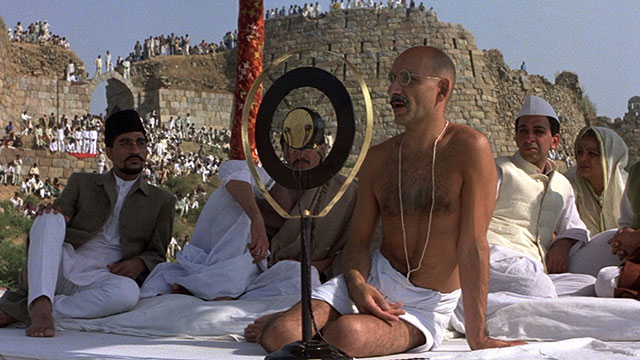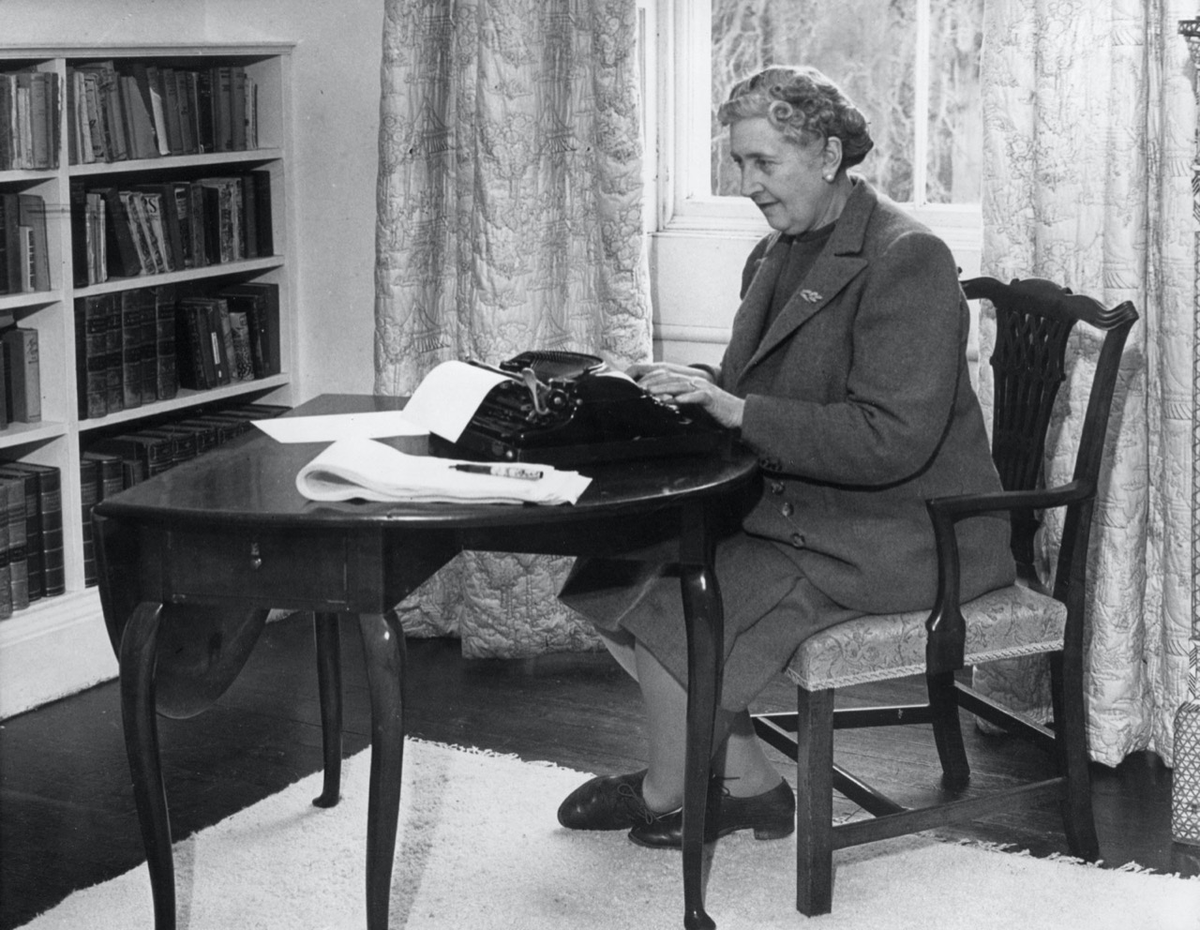The 1936 Olympics was meant to be a display of Aryan supremacy.
A grandson of slaves won 4 gold medals to dispel the myth in Hitler's den.
In his country, he still couldn't ride in the front of the bus.
Jesse Owens, one of the greatest Olympians, was born on this day in 1913!
A grandson of slaves won 4 gold medals to dispel the myth in Hitler's den.
In his country, he still couldn't ride in the front of the bus.
Jesse Owens, one of the greatest Olympians, was born on this day in 1913!

At nine his family moved to Cleveland.
When a teacher asked his name, he answered, "J.C.," which stood for James Cleveland.
The teacher misunderstood his Southern accent as 'Jesse' and the name struck.
When a teacher asked his name, he answered, "J.C.," which stood for James Cleveland.
The teacher misunderstood his Southern accent as 'Jesse' and the name struck.
When Jesse Owens reached Germany for the 1936 Olympics, another Adolf, Mr. Dassler, drove to the Olympic village and persuaded him to try out his shoes.
The success that ensued greatly increased his sales.
It was not until 1949 that Dassler would name his brand @adidas.
The success that ensued greatly increased his sales.
It was not until 1949 that Dassler would name his brand @adidas.
It was a German named Luz Long who suggested Jesse Owens to make a mark several inches before the takeoff board and jump from there to play it safe. This helped in his qualification, ultimately leading to a Gold.
He never saw Long again as the latter was killed in World War II.
He never saw Long again as the latter was killed in World War II.

Jesse Owens received no congratulatory telegram.
He lamented how there was no invitation to the White House to shake hands with the President.
One of the greatest athletes of all time had to use the freight lift to attend a reception in his honour at the Waldorf-Astoria.
He lamented how there was no invitation to the White House to shake hands with the President.
One of the greatest athletes of all time had to use the freight lift to attend a reception in his honour at the Waldorf-Astoria.
Jesse Owens was reduced to penury due to the lack of job opportunities. The hugely successful athlete had to resort to racing against horses to pay his bills.
A few years later, with the post-war boom in US, he accepted corporate jobs and made a living as a motivational speaker.
A few years later, with the post-war boom in US, he accepted corporate jobs and made a living as a motivational speaker.

In a 1950 Associated Press poll, Jesse Owens was voted the greatest track and field star for the first half of century.
In 1976, President Ford presented him with the Medal of Freedom.
He was posthumously awarded the Congressional Gold Medal by President Bush in 1990.
In 1976, President Ford presented him with the Medal of Freedom.
He was posthumously awarded the Congressional Gold Medal by President Bush in 1990.

In the latter phase of his life, he saw the Civil Rights movement unfold.
His performance was not equaled until another African-American Carl Lewis won four gold medals in the same events at the 1984 Olympics in Los Angeles.
James Cleveland Owens was quite ahead of his time!
His performance was not equaled until another African-American Carl Lewis won four gold medals in the same events at the 1984 Olympics in Los Angeles.
James Cleveland Owens was quite ahead of his time!
Since you are here, ProQuizzin League is India's first franchise-based quiz sports league.
Visit us at proquizzinleague.com or write to us at info@proquizzinleague.com
To know more, please go through this link:
economictimes.indiatimes.com/small-biz/star…
#IndiaGyanKaBhandar
Visit us at proquizzinleague.com or write to us at info@proquizzinleague.com
To know more, please go through this link:
economictimes.indiatimes.com/small-biz/star…
#IndiaGyanKaBhandar
• • •
Missing some Tweet in this thread? You can try to
force a refresh
















